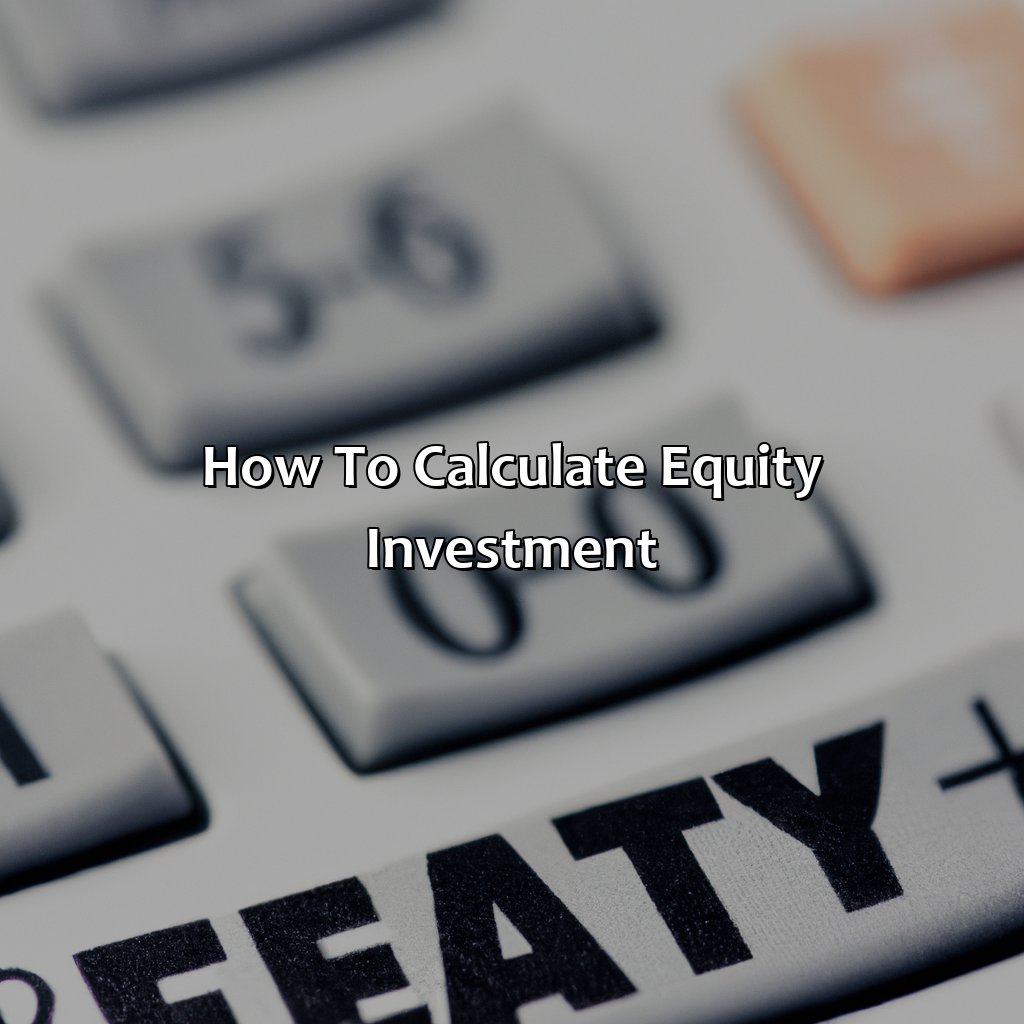How To Calculate Equity Investment?
Key Takeaway:
- Equity investment refers to purchasing shares of a company’s stock as a way to own a piece of the company and potentially earn a return on investment.
- To calculate equity investment, it is necessary to find the market value of shares and determine the number of outstanding shares.
- The simple formula for calculating equity investment is the number of shares owned multiplied by the current market price of the shares. The advanced formula takes into account any changes in the number of shares such as stock dividends, stock splits, rights issues, and share buybacks.
Are you interested in understanding how equity investments work? This article will help you gain insight into the process of calculations involved in equity investment, so you can make smart decisions about your finances.
Understanding Equity Investment
Equity investment refers to buying shares of a company, making the investor a partial owner. To calculate equity investment, multiply the number of shares owned by the price per share. It is important to understand the risks and potential rewards of equity investment before making any decisions.
Investors must carefully analyze the company’s financial statements, earnings reports, and growth potential. They should also consider the industry and competition, as well as worldwide economic trends. By doing so, investors can accurately determine the value of their equity investments.
Aside from calculating equity investment, investors must also monitor the performance of their portfolio and make adjustments whenever necessary. Selling equity shares at the right time can maximize returns and minimize losses.
Equity investment comes with inherent risks, as share prices can fluctuate significantly. In 2008, the global financial crisis caused stock prices to drop dramatically. Investors who panicked and sold their shares suffered significant losses. Those who held onto their investments, however, eventually recovered their losses as the market bounced back.
To succeed in equity investment, investors must be patient, knowledgeable, and have a long-term outlook. By understanding various factors that affect share prices and value, investors can make informed decisions and potentially earn significant returns on their investment.
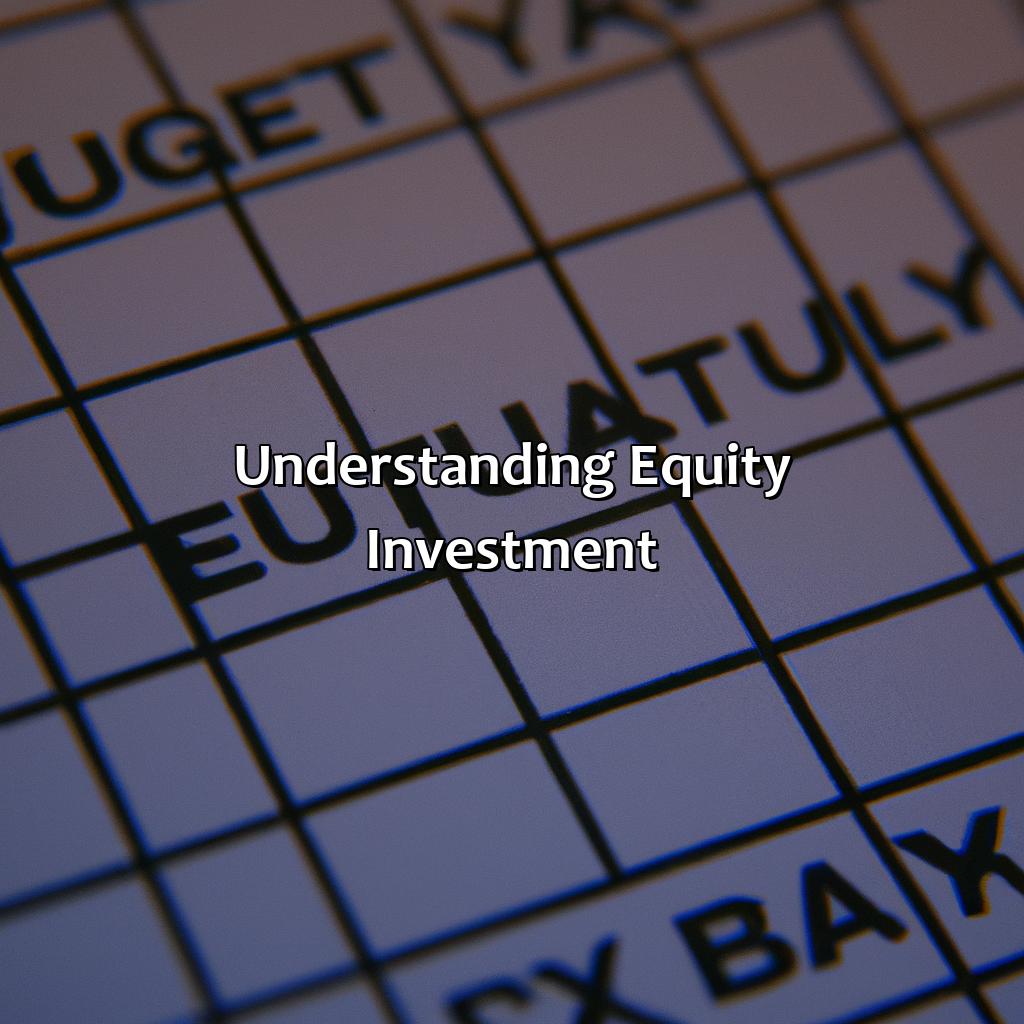
Image credits: retiregenz.com by Adam Woodhock
Calculation of Equity Investment
Calculating equity investment involves determining the value of one’s ownership position in a company’s stocks or shares. This can be done by multiplying the number of shares owned by the current market value per share. For example, if an investor owns 100 shares priced at $50 each, their equity investment would be $5,000. It is important to keep track of these values to assess the performance of one’s investment portfolio.
In addition to calculating equity investment, investors may also consider evaluating the company’s financial statements, management team and industry trends to make informed investment decisions. Conducting due diligence before investing can help mitigate risks and maximize potential returns. It’s important to consider both quantitative and qualitative factors when making investment decisions.
Pro Tip: It’s important to remember that equity investments are subject to market fluctuations and can carry higher risk than other investment types. Diversification and a long-term investment outlook can help mitigate risks and achieve investment goals.
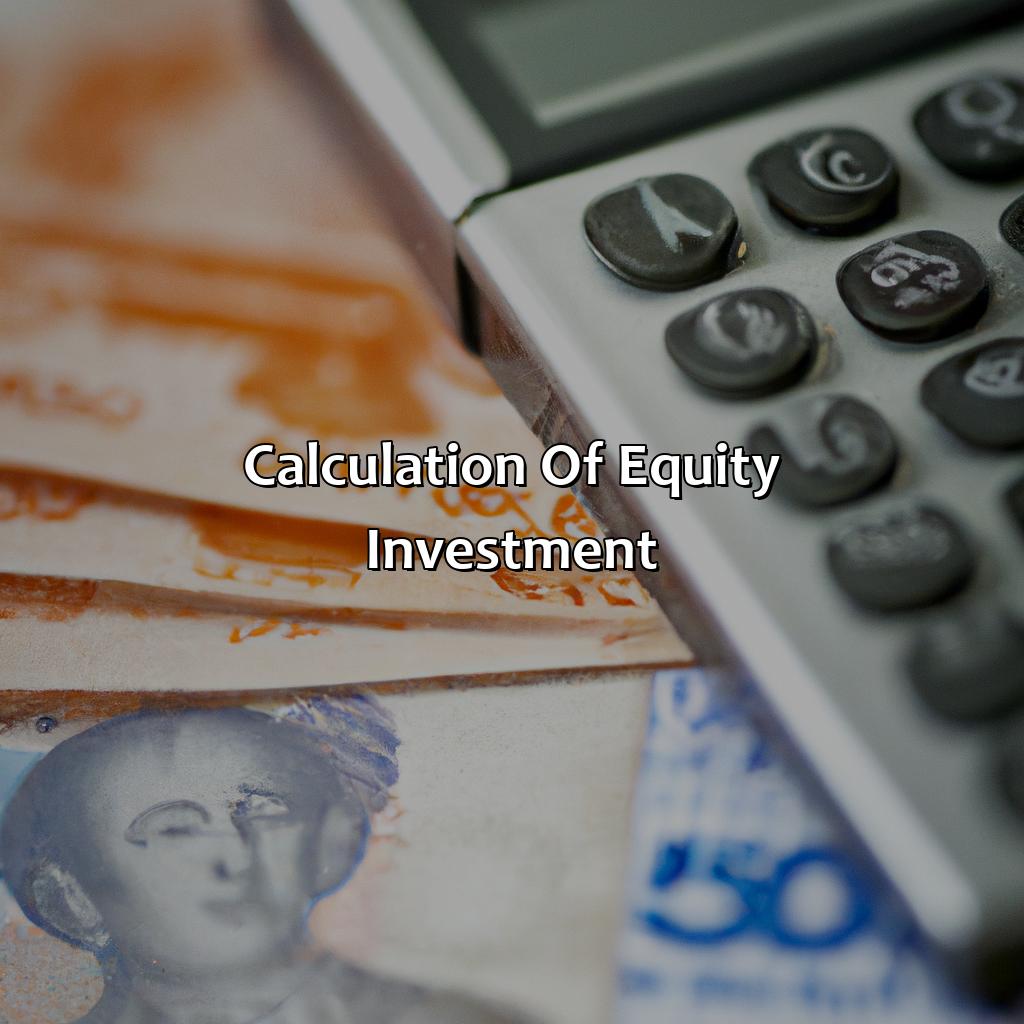
Image credits: retiregenz.com by Harry Washington
Calculating Equity Investment
Calculating equity investment involves determining the amount of ownership an individual or entity has in a company, based on the number of shares owned and the value of those shares. To calculate the equity investment, one needs to know the current market price of the shares of the company and the number of shares owned by the investor or entity.
By multiplying the number of shares owned by the current market price of a single share, the equity investment can be calculated. This calculation gives the total value of the investor’s stake in the company, which can be used to determine the percentage of ownership.
It’s important to note that the value of the equity investment can change based on fluctuations in the stock market and the company’s financial performance. Investors may also choose to sell their shares, which can affect their equity investment.
One individual had invested in a startup that quickly gained popularity in the tech industry. As the company’s value skyrocketed, so did the value of their equity investment. They kept a close eye on market trends and sold their shares at the right time, resulting in a significant return on their investment. This underscores the importance of monitoring equity investments and making informed decisions.
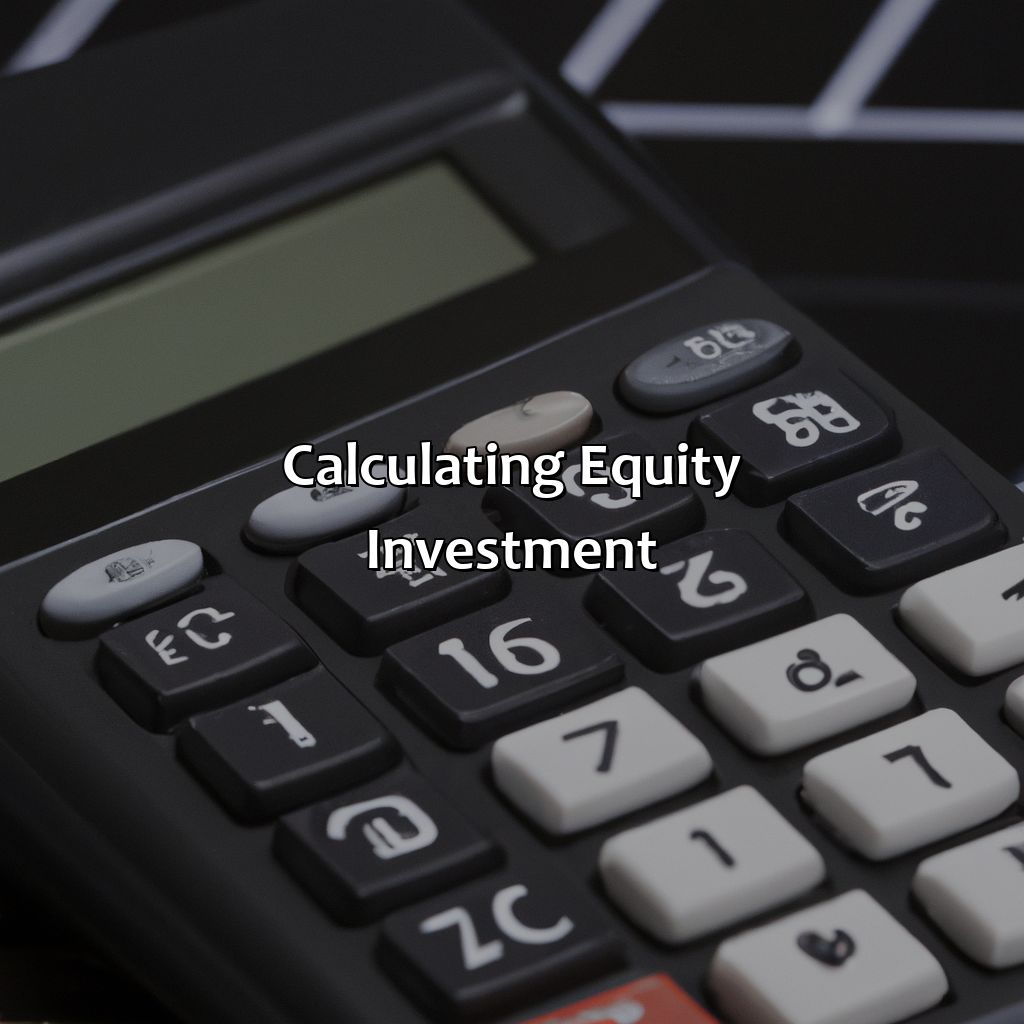
Image credits: retiregenz.com by Joel Jones
Factors Affecting Equity Investment Calculation
Investing in equity requires a thorough understanding of the factors that affect its calculation. Here’s an informative approach to help you gain insight into how to calculate equity investment and its influential elements.
To understand the quantitative factors that impact equity investment calculation, let’s explore the key aspects of this investment class.
| Factors | Description |
|---|---|
| Market Performance | Analyzing the market trends and conditions that influence the company’s stock. |
| Company Performance | Analyzing the company’s revenue, earnings, assets, liabilities and evaluating other metrics to assess its current and future performance. |
| Economic Conditions | Analyzing broader macroeconomic factors such as inflation, interest rates, and political situation that can affect the market and the company. |
| Industry Performance | Analyzing the performance of other companies in the same industry, regulatory requirements, and technological advancements. |
Factors involved in equity investment are complex and dynamic. Also, additional factors such as geopolitical risk, liquidity, and volatility can impact investment outcomes. Hence, the need for a deep understanding of diverse market and economic variables.
Looking at the history of equity investment calculation, equity returns have provided some of the highest historical investment returns over the long term. However, equity investment also involves a higher degree of risk compared to other investment classes. Hence, it is essential to learn how to calculate equity investment and keep a check on the factors affecting it.
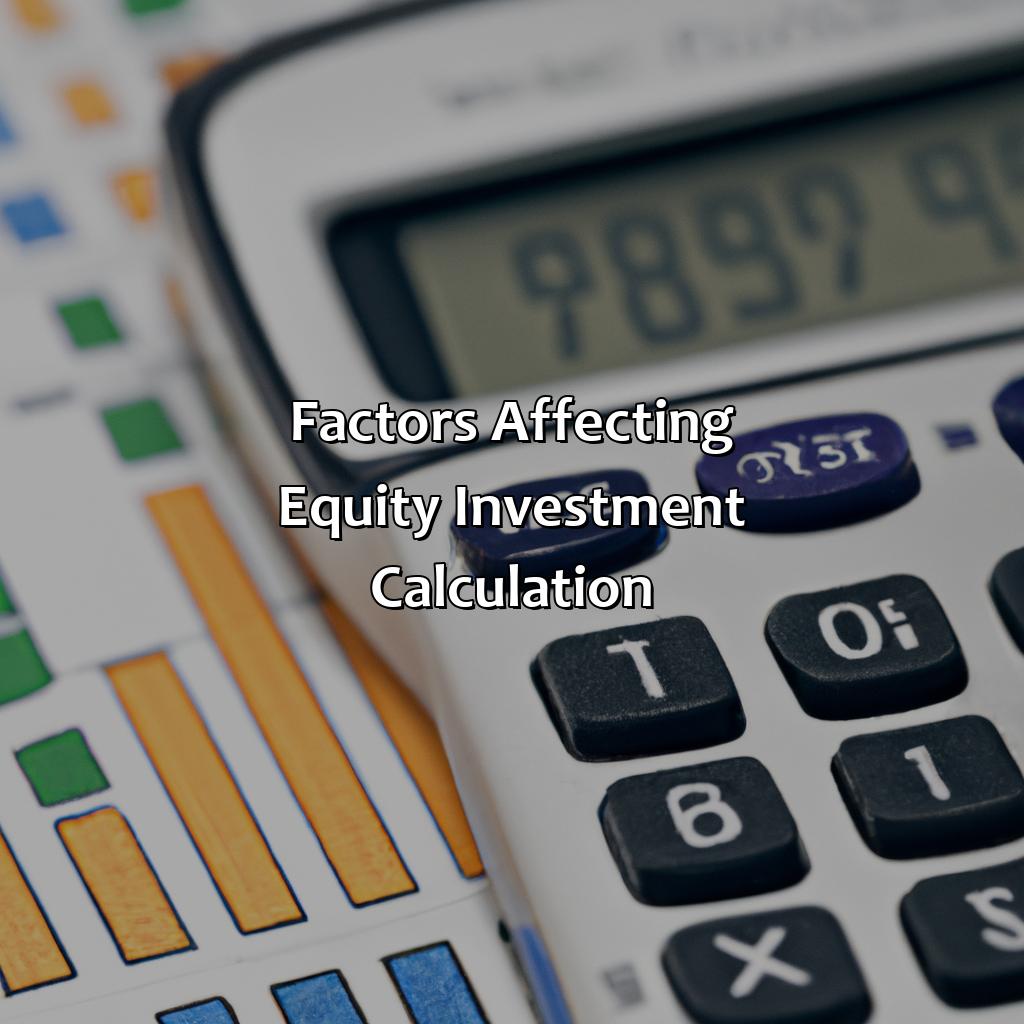
Image credits: retiregenz.com by Joel Arnold
Some Facts About How To Calculate Equity Investment:
Equity investment is calculated by multiplying the number of shares by the current stock price. (Source: The Balance)
Investor return from equity investment is calculated by subtracting the initial investment from the final investment value divided by the initial investment. (Source: Investopedia)
The earnings per share (EPS) ratio is used to measure the profitability of a company and can be calculated by dividing the company’s net income by the number of outstanding shares. (Source: Wall Street Mojo)
Return on equity (ROE) is a key metric used to evaluate the efficiency and profitability of a company and can be calculated by dividing the net income by the shareholder’s equity. (Source: Morningstar)
The price-to-earnings (P/E) ratio is calculated by dividing the current market price per share by the company’s earnings per share. (Source: Investopedia)
FAQs about How To Calculate Equity Investment?
What is equity investment?
Equity investment is the purchase of shares in a company, giving the investor partial ownership of the company in exchange for potential future profits.
How do I calculate equity investment?
To calculate equity investment, multiply the number of shares by the current share price. For example, if you bought 100 shares at $50 per share, your equity investment would be $5,000.
How does equity investment differ from debt investment?
Equity investment involves ownership in the company and potential for higher returns, but also carries higher risk. Debt investment involves lending money to the company with the expectation of fixed payments and lower risk.
What factors influence the value of my equity investment?
The value of your equity investment can be influenced by company performance, market and economic conditions, and investor sentiment.
What is the difference between book value and market value of equity investment?
Book value is the value of the company’s assets minus its liabilities and can be used to determine the underlying value of the company. Market value is the value of the company’s shares based on current market conditions and investor demand.
How can I monitor and manage my equity investment?
You can monitor your equity investment by tracking company performance and market conditions, setting investment goals and regularly reviewing your portfolio. Professional financial advisors can also provide guidance in managing your investment.
 Checkout this IRS Loophole
Checkout this IRS Loophole 
